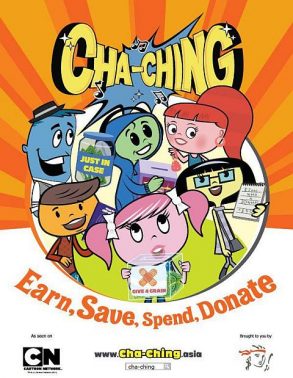This post is the fifth of a series. Those who missed past posts may click here – Part I, Part II, Part III, and Part IV. I am by no means an expert on this topic, these are merely my thoughts which I hope would also benefit parents like me.

In Part III, I discussed the importance of inculcating self-control in children. But, how exactly can we, as parents, do that? Sure, there may be games and “tests” but I realized that they are not enough. Children may learn something from them but to have the lesson “stick” forever in their minds and hearts, something more must be done.
While listening to the audiobook version of “The Millionaire Next Door” by Thomas J. Stanley and William D. Danko (a very good book by the way), it dawned on me that those who are truly financially successful usually have a very simple lifestyle.
I recalled too that in Robert Kiyosaki’s Cashflow 101 board game (which I have not played yet ironically), those with simple professions/jobs like policeman or truck driver are able to get out of the rat race faster because they have lower expenses. There are many stories of people with very simple jobs and low salaries who were able to amass millions because of being frugal and living simply.
Related posts about Cashflow 101:
- Top 7 lessons I learned from playing Rich Dad’s Cashflow 101 game
- How to turn listings of foreclosed properties into opportunities (just like in Cashflow 101)
A light-bulb moment
With those thoughts, a light-bulb went off in my mind. Children must get used to a simple lifestyle so that when they grow old, that lifestyle which they are used to will effectively make them “control” themselves. It will be their subconscious thermostat. When you are used to a simple lifestyle for years, it will be very hard to shake off, yes?
Conversely, if the family’s lifestyle is grand, and a child grows up with that lifestyle, the child will get used to such lifestyle and think that his/her parents’ riches are his/hers. When the child gets out of college, the child will continue to live a rich lifestyle but without his/her own money to back it up. It isn’t clear to the child that he/she should work for his/her own keep so if he/she has only so much, he/she should spend within his/her means.
With this in mind, it may be better for the child if the parents maintain a simple lifestyle even if they could technically afford a better one. Note, too, that even if the family’s lifestyle is simple, children must not feel deprived so that when they grow old, they will not feel a need to spend unnecessarily. A child needs only to feel loved and appreciated, with or without expensive toys. Time spent by parents with their children is more precious than all the toys in the world.
Needs vs. wants
When you have a simple lifestyle, you are effectively clearly defining your needs vs. wants – this is a very important distinction which many have a difficult time doing. Without a clear idea of needs vs. wants, spending becomes out of control, and a person may be unconsciously keeping up with the Joneses, so to speak.
Ecclesiastes 4:4 struck me and I know this is very true:
“And I saw that all labor and all achievement spring from man’s envy of his neighbour. This too is meaningless, a chasing after the wind.”
We want our children to not be easily swayed by the herd and be firm in their beliefs.
Now, all these “adult” things that are difficult to do like budgeting, saving, and basically leading a simple lifestyle – if we have been used to all these things since childhood, all these would be painless. If a person, since childhood, feels secure even if he/she does not have riches that may be shown off, he/she will not feel any need to keep up appearances and spend unnecessarily.
Wasn’t that such a brilliant, earth-shaking idea? I know it’s really common sense but it just came to me recently.
The concept of getting used to a simple lifestyle is straightforward but it’s really the execution that’s hard because it’s us parents who need to change our ways, which we had gotten used to over many years. Children unconsciously turn out to be like their parents, so parents must take the lead and consciously set good examples (such a heavy burden, I know).
What children see is what they do
Children tend to make lifestyle choices according to what they see regularly, which may be, in addition to their parents, influenced by their schoolmates and friends, since children spend so much time with them. This is why I believe it is important for a child to be with “simple” friends and in a “simple” school and neighborhood. If your children’s schoolmates and friends are not living a simple lifestyle, really, what do you expect?
What do you guys think? How can we inculcate having a simple lifestyle to our kids?
Cherry Vi M. Saldua-Castillo
Real Estate Broker, Lawyer, and CPA
PRC Real Estate Broker License No. 3187
PRC CPA License No. 0102054
Roll of Attorneys No. 55239
2013 Internal Education Head, REBAP-LMP
Text by Jay Castillo and Cherry Castillo. Copyright © 2008 – 2013 All rights reserved.
Full disclosure: Nothing to disclose.
Picture from freedigitalphotos









Pingback: Financial Education for Kids Part VI: Have a Role Model - ForeclosurePhilippines.com